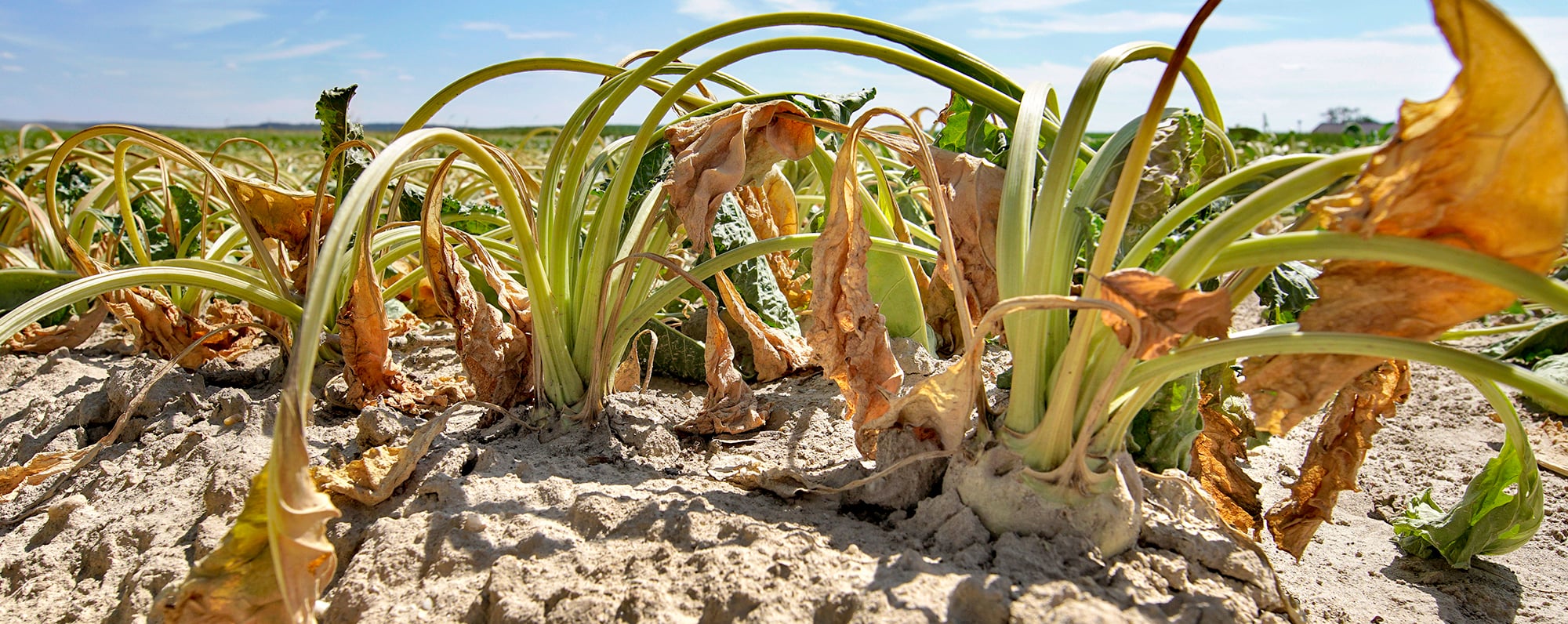Adequate supplies of fresh water are crucial for our country, not least for dike stability, nature, drinking water and electricity. Many economic sectors – such as agriculture, shipping and industry – depend on fresh water. These sectors play a substantial role in our national economy. Adequate supplies of fresh water are also important for public health and the urban living environment, and to tackle land subsidence.
There is not always enough fresh water to meet demand. That became clear during the prolonged droughts in the summers of 2018 and 2019, the spring of 2020, and the summer of 2022. The droughts led to difficulties in a range of locations. There was damage in agricultural and natural areas as a result of salinisation and the lack of fresh water, and there were problems with water quality in urban and rural areas. Low groundwater levels led to additional land subsidence and damage to foundations. There were also difficulties for shipping because of low water levels in the rivers. It is expected that dry periods of this kind will be more frequent in the future. The 2024 delta scenarios show, for example, that less water will be available in summer, while water demand will increase sharply, resulting in more frequent droughts and water shortages. The limits of the current freshwater strategy system are coming into view. Making water and soil leading for spatial planning will ensure that the Netherlands continues to be liveable and climate-robust in the future.
Delta Decision and Delta Plan
Fresh water is one of the three themes in the Delta Programme. The general policy has been set out in the Freshwater Delta Decision, with elements being anchored in the National Water Programme and the National Environment Planning Vision (NOVI). The core of that policy is to make the Netherlands resilient to freshwater shortages by 2050. Concrete measures for the implementation of the policy are described in the Freshwater Delta Plan.
The Freshwater Delta Decision is a part of the second periodical evaluation of the Delta Programme, which will be presented in 2026.
National Freshwater Strategy
The 2024 delta scenarios show that the current National Freshwater Strategy, as set out in the 2024-2027 National Water Programme (NWP), cannot be maintained as long as previously thought. Optimising the current water system will no longer suffice. This means that all sectors must adapt their water use in line with drier and/or more saline conditions. And that current functions cannot always be maintained where they are now.
This confirms and intensifies the importance and urgency of putting the planning decisions from the Parliamentary Letter on Water and Soil as Leading Factors into practice and making a clear decision to stop passing on problems to other regions and future generations, and from the private to the public sphere. The required change in water management and land use must also be seen in the spatial plans developed nationally and in the regions. The urgency and spatial consequences prompted the Minister of Infrastructure and Water Management to send a Letter to Parliament (June 2024), which was also discussed in the Delta Programme Steering Group.
Climate-Resilient Freshwater Supplies in the Main Water System
To be resilient to drought and water shortages by 2050, the NWP includes a national strategy for the main water system: the Climate-Resilient Freshwater Supplies in the Main Water System (KZH) strategy. The objectives are to retain the water, get it to the right place (where it is needed) and save fresh water. Work has taken place on this strategy over the past few years, and further refinements will be made in the years ahead. The KZH will set out the options in late 2025: to what extent and until when can the current optimised main water system meet freshwater demand from the different regions?
Working together
Water shortages can be prevented only if there are concerted efforts from all government authorities and users of fresh water. Rijkswaterstaat and the water authorities can improve freshwater influx routes and build up buffers. Provincial and municipal authorities implement this in spatial planning. Major water users, such as business, farmers and horticulturalists, and nature management authorities, can focus on saving water and adapting land use to water availability.
Knowledge and innovation
Robust freshwater supplies require new technologies, practices and business methods. Research and innovation are therefore an important component of the Freshwater Delta Programme. More than 25 pilot projects have been conducted since 2015 under the Innovative Climate Adaptation Pilot Projects for Fresh Water programme. The topics covered were: improving the use of freshwater sources, storing and retaining fresh water, and using water more sparingly and managing it more intelligently.
Knowledge about fresh water is kept up-to-date with the knowledge agenda of the Freshwater Delta Programme. This agenda is updated annually and provides an overview of the progress and outcomes of the programmes, studies and pilot projects in the Freshwater Delta Programme. The results of studies and pilot projects are shared at knowledge days and during national and regional presentations.
